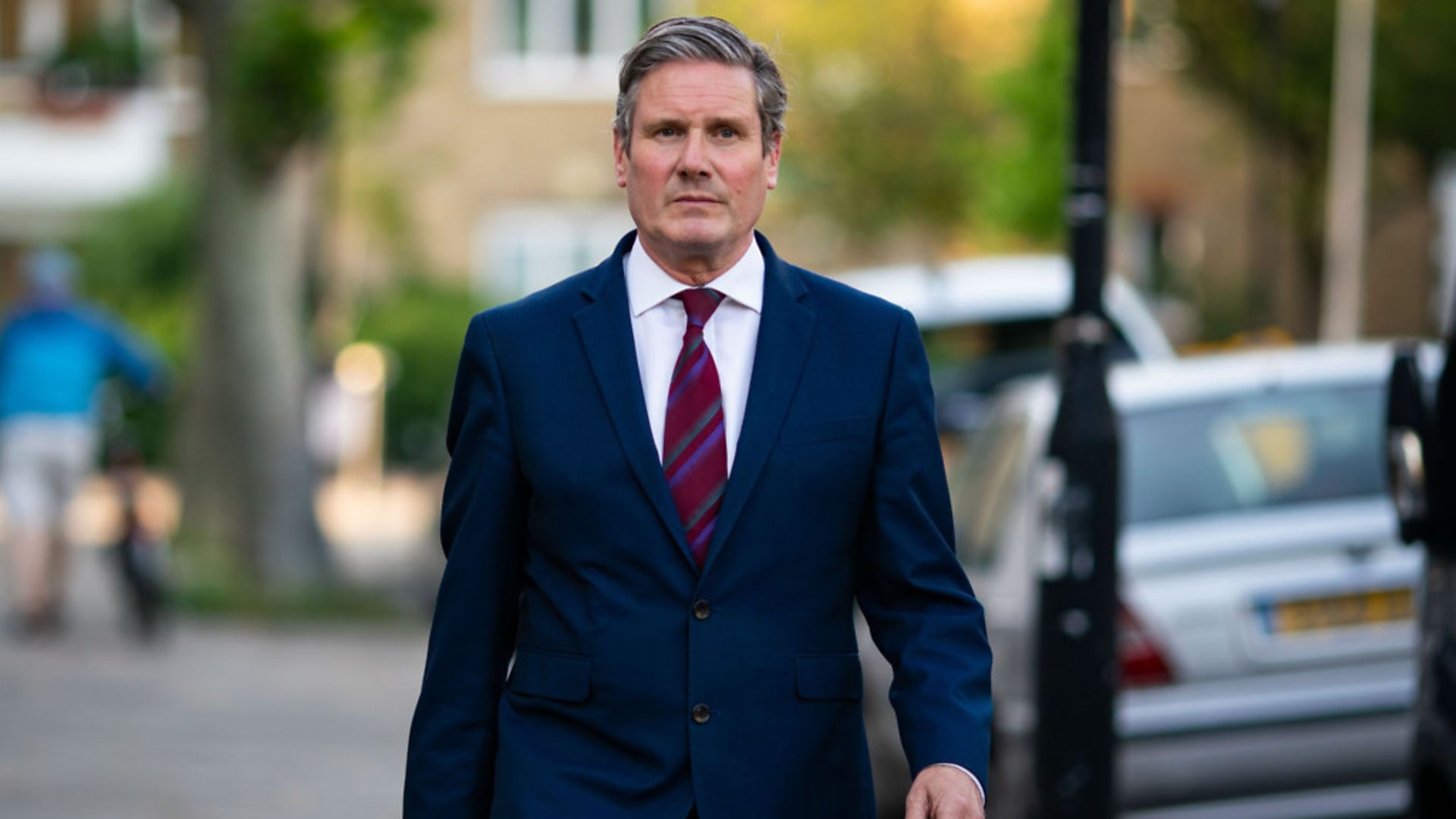Keir Starmer (“Labour are ready for a lame duck shoot”, TNE #280) has done good work to repair the damage done by Corbynism. Talk of a non-aggression pact with the Lib Dems at the next election is welcome. He is right to think that Boris Johnson staying offers Labour their best chance of winning an election – he is damaged goods now, and the people I know who put their trust in him feel betrayed.
But will this be enough when Starmer and his shadow cabinet have failed to set Labour’s stall out? What are their five key policies? What do they stand for, apart from the nebulous slogan “security, prosperity, respect”? It sounds like a dull Style Council B-side.
My fear is that the local elections take Johnson down, and Britain then faces the choice of an ex-chancellor who paid people to stay at home and then to dine out, or a clever man who does not seem to know what his policies are.
Marie Stephens
Leeds
If Labour feel that the only way they can feasibly beat the Tories is by them turning a blind eye to Boris, it suggests they have no policies with which they think they can win an argument with the British people.
At a time when the opposition should be soaring way ahead in the polls, they are losing ground again. The anger in the country against the government should have a leader of the opposition salivating. Instead, there is no forward momentum, no positive message, no daylight between them on several important issues.
And don’t get me started on the elephant in the room…
Richard Kennedy
Via Facebook
It’s going to be very hard for the 17million sensible Remainers to fully endorse a Labour leader who can’t seem to parse his wording in such a way that doesn’t rub their noses in it. Nobody demanded, for example, that he call Brexit an “opportunity” – popular though it may be with his focus groups and the so-called Red Wall. It’s actually offensive blithering nonsense, especially to those of us being crushed by its consequences still patiently waiting for an apology.
Starmer needs to spend a little longer thinking about the right way to nuance any further remarks that don’t distance him from what is after all Johnson’s dangerous and damaging folly.
David Knopfler
Carr crash
The point of Jimmy Carr’s joke about the Holocaust (“Everyday Philosophy”, TNE #280) was to make people laugh, which they did, and then to make them feel bad about it.
Carr’s joke is actually followed by a mention of the fact that Roma, blacks, disabled, and Jehovah’s Witnesses are forgotten victims of the Holocaust. It does far more to challenge racism than the backlash. The backlash against the joke allows a lot of people who are habitually racist about Roma to say that was too far, while continuing to suggest that Roma are criminals and objecting to them living in their area.
A case in point: one of the people who criticised the joke was Boris Johnson. A man who has form both for racism and racist jokes and is currently criminalising the existence of Roma by making laws which could see them locked up in effect for simply being Roma. Joining the backlash allows him to signal that he isn’t racist, and to talk about bad taste while simultaneously criminalising their lifestyle.
Mashuu Shirakami
Via Facebook
I take on board Nigel Warburton’s comments that once society limits free expression, it is on a slippery slope. But there is a huge caveat. Jimmy Carr’s “joke” was not a joke in any way, shape or form. It was a completely crass, cruel and indefensible attack on a demographic that is often vilified.
So I agree with Warburton’s summing up, that “normalising” this sense of humour is still not the right approach. Carr has been called out for this joke and rightly so, there is enough racial intolerance in this world and he should be ashamed that he has added to this ongoing problem. Even if he got what he probably yearns for, yet more publicity, regardless of its disapprobation.
Judith A Daniels
Great Yarmouth, Norfolk
Reading Nigel Warburton’s article Everyday Philosophy: Metaphors, (TNE #279) I immediately thought of a basic requisite for reforming the UK government.
Just as in learning to ski one must first master the “snowplough” as an essential method of stopping, so if we wish to advance towards a Federal UK we must have the courage to “schuss” towards setting up a devolved English parliament now!
Margot Kerr
Inverness
Whose army?
Re: Paul Mason’s “Let’s build a modern military that looks like modern Britain” (TNE #280). Wouldn’t a smaller military in line with Britain in the 21st century be better than one based on delusions of grandeur and days of empire?
Ken Groves
Via Facebook
Modern Britain is governed by lying fraudsters, headed by a dysfunctional royal family, policed by racist misogynists. Meanwhile millions of the population are living on the poverty line and the infrastructure is crumbling. Should produce a bloody good army, eh?
Keith Pine
Via Facebook
I enjoyed Paul Mason’s “The market cannot control energy prices. We must control energy” (TNE #279). Since we are not just facing an energy price crisis but a climate emergency, our governments need to be looking at the cheapest, quickest and most efficient ways to control and reduce our energy use and transition to green energy supply. Governments are able to do this without profiting at the expense of consumers.
Fossil fuel production companies should certainly be taxed on windfall profits, with money reaped used in the short term to help those worst affected by energy price rises, but most effectively to help reduce energy consumption in the long term.
In the UK, up to about a third of all energy is consumed in the domestic context and we have some of the leakiest and most inefficient building stock in Europe. Through improving the efficiency of our building stock with the installation of insulation and more efficient heating mechanisms and windows, we will help keep energy costs and emissions down. This will reduce the amount of energy from the demand side and therefore costs.
For the long term, it does not make sense to subsidise fossil-fuel companies by paying bills via government hand-outs for heating and energy bills, which are likely to keep rising, and this does not make inefficient homes any more functional or comfortable.
Dr Henrietta Lynch
Our shame
Suna Erdem’s “To Have Or Have Not” (TNE #279) makes for sobering reading. The facts on migration are shocking and the reaction by numerous governments is shameful. On a humanitarian scale, this casual disregard for the plight of people fleeing their homes due to war, famine, oppression and fear of torture or death is callous and represents a gross act of neglect on a massive scale.
Rejection of migrants and refugees is also short-sighted. Nearly all the Western countries that are so attractive to those fleeing poverty, hunger, persecution or worse, have ageing populations and a skills shortage. If the “Canadian model” were applied, welcoming people, teaching them the language of their new home, helping them acquire new skills or enhancing the skills they bring with them, then they could contribute hugely to the prosperity of their host countries and feel safe and welcome there, in many cases settling for good rather than eventually returning to their place of origin.
To refuse these people, many of them young and willing to learn and integrate, the basic human right of being able to sleep safely at night, make a living and enjoy a decent life, is a shameful indictment that will come to haunt the West.
Janet Berridge
Berlin
Your articles about migrants (TNE #278 and #279) were a masterpiece of reporting, but fell short, I thought, in addressing solutions to the problem. Perhaps a further instalment is called for, dealing in more depth with the issues of validating asylum applications and providing long-term homes and livelihoods for successful applicants and their families.
A front cover of TNE in September last year repeated the meme of a maritime patrol asking a boatload of migrants “Can any of you drive a lorry?”, but few outlets have (to my recollection) gone on to explore the rather obvious implication – that migrants possess many of the skills that this country needs, following Brexit.
This may be something that our government wants to wish away, but it has to be confronted. Surely the subject is not too hot to handle?
Nigel Britton
Blown away
When Sophia Deboick describes Wind of Change as “perhaps the most popular and recognisable political song of all time” (“The People Power Ballad”, TNE #279), isn’t she forgetting the Marseillaise and the Internationale?
Carolyn Beckingham
Lewes
Trudgill corner
How is it that the word “flush” has so many meanings?
As in: “I was flush because I earned a lot of money on a moorland shoot learning how to flush the pheasants, although they were hard to spot as they were hiding in holes with their backs flush with the level of the ground. All the climbing brought a flush to my cheeks; also there were only primitive toilets with no flush. Afterwards, playing poker, I won another fiver with a three-card flush.”
Dave Stephenson
Peter Trudgill writes: “These are possibly all the same word in origin – but the origin itself is also obscure, as there is no certain etymology. The notion of sudden movement (perhaps influenced by flash) seems to be crucial, as of birds suddenly taking to flight. Sudden movement of water is what gives us flush as of a toilet; and a strong flow of water can lead to high water, so the ‘even, level with’ meaning comes from a river running full (and so level with its banks). A sudden rush of blood to the face gives us that sense of flush, perhaps influenced by blush and/or flesh. And the sense of ‘a hand consisting of cards all of one suit etc’ may come from 15th-century French flus with the same meaning and/or Italian flusso, from Latin flux. There is also a possibility that our word generally comes from flux, but the OED doesn’t think so and suggests it’s onomatopoeic, as of the noise of birds taking to flight.”
Damn lies
Benjamin Disraeli famously warned against putting too much store in statistics, and the latest growth figures are a perfect example of why he was right. On the face of it, 2021 was a fabulous year for the economy. Britain has had some boom years in the postwar period, but the 7.5% growth last year was the fastest of the lot.
Yet 2021 can’t be seen in isolation. Johnson and Sunak are correct when they say the UK had the fastest growth in the G7 last year, yet what they omit is that it came after the UK had the biggest contraction of any G7 nation a year earlier. The real story is that the economy collapsed by almost 10% in 2020 and then recovered most of the lost ground last year.
Indeed, activity in the final three months of 2021 was 0.4% lower than in the final three months of 2019 – immediately before the pandemic. By way of comparison, the eurozone is back to where it was pre-Covid. As the cost-of-living crisis builds, this doesn’t herald a rosy outlook, and this year UK growth will inevitably slow to its poor post-Brexit level.
Alex Orr
Edinburgh



